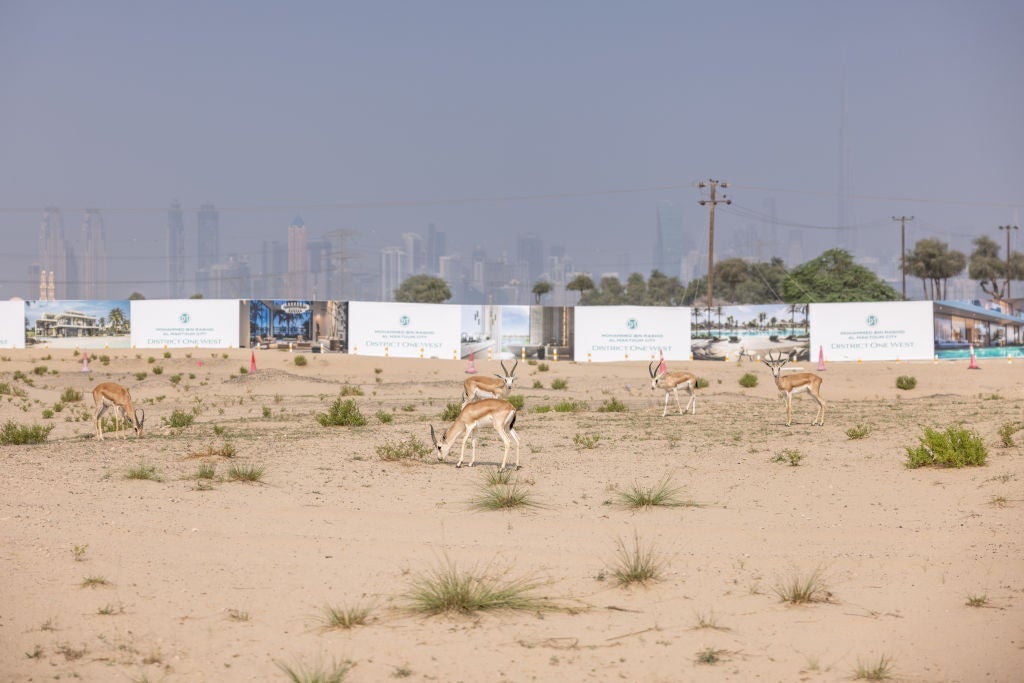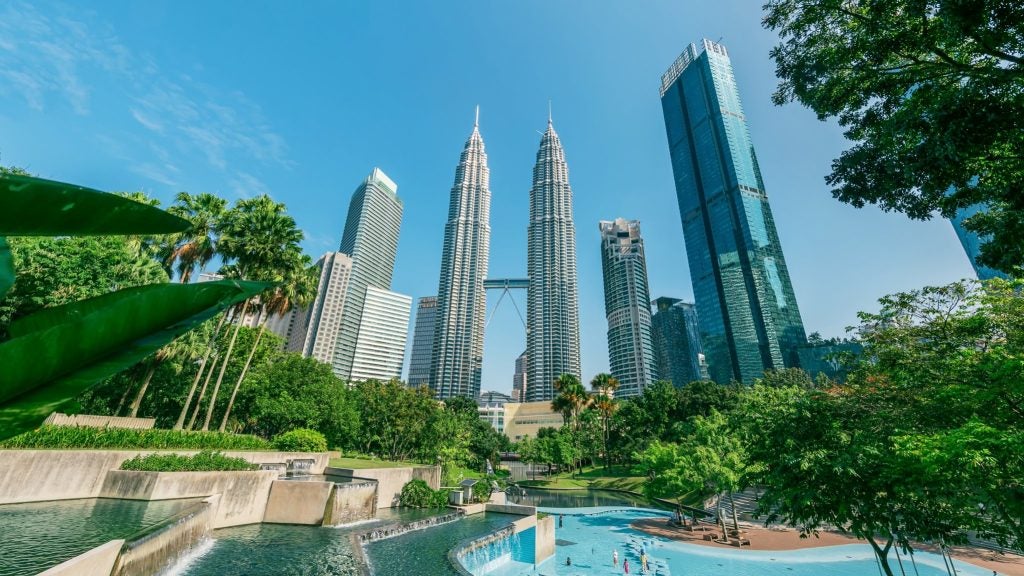
On 30 November, some 75,000 delegates including politicians, ministers, representatives from civil society, the private sector, international organisations and media organisations (including Energy Monitor) will descend on Expo City Dubai for what is expected to be the largest COP ever. Leaders including Pope Francis and King Charles III are set to attend (although reportedly, US President Joe Biden will not). Why is COP28 the most important COP since Paris in 2015?
In many ways, the 28th annual UN climate conference in Dubai, (literally ‘Conference of the Parties’), is expected to be similar to what we have seen before. Talks will largely focus on how to honour the 2015 Paris Agreement, a legally binding agreement to limit global warming to at least below 2°C above pre-industrial levels, and ideally 1.5°C, which has been signed by 195 parties.

Access deeper industry intelligence
Experience unmatched clarity with a single platform that combines unique data, AI, and human expertise.
For the past few years, ever since the Intergovernmental Panel on Climate Change (IPCC) published a report in 2018 warning that the difference between 1.5°C and 2°C is significant, parties have focused on the more ambitious target of 1.5°C, which would require global emissions to reach ‘net zero’ by 2050.
To be on track for net zero 2050, the IPCC has said that emissions will have to drop 45% compared with 2010 levels by 2030. However, current trends have analysts predicting record emissions in 2023, a year in which a series of emissions and extreme weather records have been broken.
The World Meteorological Organisation (WMO) also warned this year that the world is likely to experience at least one year where the global average surface temperature exceeds 1.5°C above pre-industrial levels over the next five years. Meanwhile, the recent UN Production Gap report warned that governments are currently planning to produce 110% more fossil fuels in 2030 than would be consistent with limiting warming to 1.5°C.
COP hosts are always expected to impose “something of their own agenda” on proceedings, says Alex Scott from the think tank E3G. This year, that includes new initiatives to tackle the impacts of climate change on health, improve access to finance for fragile and conflict-affected states, as well as a big push for food system transformations.

US Tariffs are shifting - will you react or anticipate?
Don’t let policy changes catch you off guard. Stay proactive with real-time data and expert analysis.
By GlobalDataBy the second week of COP28, all eyes will be on the UN negotiations, which are set to result in an agreement that will update climate ambition and policy for the year ahead. All 198 countries who are party to the UNFCCC will have to sign up to the final cover text for the negotiated outcome to be adopted.
Why COP28 matters: The Global Stocktake
There is one major difference in this year’s COP agenda, however, which has led the Stockholm Environment Institute’s (SEI) Richard Klein to label it “the most important COP since the Paris Agreement” in a recent pre-COP28 briefing hosted by SEI.
That difference is the conclusion of the first Global Stocktake (GS), a process outlined in the Paris Agreement that is the main mechanism through which progress on climate action is assessed. The GS comprises three stages, starting with the gathering and synthesising of information on climate change and climate action from governments, which began at COP26 in Glasgow. This is followed by an analysis of progress made in implementing the Paris Agreement (which resulted in a synthesis report released in September); the third stage will take place at COP28, where findings will be discussed and an appropriate policy response will be agreed upon.
The synthesis report details how the world remains well off track from meeting the ambitions of the Paris Agreement, calling for “system transformation” on “all fronts”. However, there is hope still , with “actionable solutions” to combat global warming including clean technologies that can be rapidly deployed and action that can be taken to unlock trillions of dollars in investment.
The report also details division (“Some Parties… note with concern that some developed countries whose emissions already peaked decades ago, commit to achieving net zero GHG emissions only by 2050”), and calls for a significant boost to adaptation efforts (“Most observed adaptation efforts are fragmented, incremental, sector-specific and unequally distributed across regions”).
“This is the most important session of the Conference of the Parties since Paris in 2015, because the outcome of the Global Stocktake will basically set the agenda for the next five or 10 years of climate discussions,” says Richard Klein. “What we have seen from the stocktake so far is a mixed bag: We are moving in the right direction, but not nearly fast enough.”
E3G’s Scott adds that the stocktake is “the next stage in the building of the Paris Agreement architecture, which is the global governance that we have had on climate change since 2015”.
“The policy outcome of the stocktake is probably not going to land at this COP, but what we will get is a political direction on where countries want to go, given what we know right now,” she adds.
Loss and damage
Beyond the Global Stocktake, another key task for negotiators is getting a new loss and damage fund up and running. This fund was arguably the main legacy of COP27, and promises to compensate developing economies that are least responsible for climate change for climate impacts.
Ahead of COP28, negotiators reached agreement on a framework for the fund, with the World Bank set to host it on an interim basis for four years. Developing countries have already expressed disappointment that there has been no immediate capitalisation of the fund, and no clear language making rich countries liable for financial losses related to climate change-induced extreme weather events.
While the framework “delivered on its mandate”, it was “the furthest thing imaginable from a success”, said Brandon Wu, director of policy and campaigns at NGO ActionAid USA.
Don’t miss our coverage of COP28! Subscribe here for exclusive insights & analysis.COP28 will be crucial in determining what the fund will look like, and how it will operate in practice. Loss and damage is set to feature some of the most contested negotiations – and should they fail, bad blood may hinder other areas of COP28 discussion.
“There is a lot left to be decided on loss and damage at COP28, and there is no guarantee that a final decision will be reached”, E3G’s Scott adds.
Antony Froggatt, deputy director of the climate programme at think tank Chatham House, believes that we should be vigilant of pledges that are made to provide loss and damage funding.
“Obviously, there is a tendency for countries to move existing climate finance or development financing into new funding mechanisms, rather than allocating new funds,” he says. “Loss and damage negotiations will be a crucial test to the goodwill of rich countries to actually help out.”
Adaptation and mitigation at COP28
COP28 is also set to see landmark climate adaptation negotiations, with governments due to adopt a framework for achieving the Paris Agreement’s 'global goal on adaptation' (GGA). No clear definition of the goal was provided in the Paris Agreement; the aim of the GGA is to develop guidelines to allow countries to have more focused, measurable and comparable adaptation goals to pursue.
The outcome of the GGA remains unclear, but what we do know is that the world is falling hugely short on adaptation. A recent UN report found that the financing gap between requirements and achievements is now at a staggering $194bn–366bn per year. Even as needs continue to grow, international public funding for adaptation in developing economies actually fell by 15% in 2021.
On mitigation, meanwhile, there is expected to be renewed focus on renewables, after G20 leaders agreed in September to “pursue and encourage efforts to triple renewable energy capacity globally”, as well as to double energy efficiency, by 2030.
If countries agree to adopt this target, it would be a “landmark moment”, says Froggatt, adding that it “would require a total transformation of the energy sector, even in countries in Europe, which have so far led on renewables penetration globally”.
Scott, meanwhile, expects that “not every country will sign up to a tripling renewables pledge”, but even if it occurs on the sidelines of the main negotiations, she believes a renewables pledge will nonetheless be a key tool to “build up momentum towards the ultimate COP decisions that we need” if the world is to meet its climate goals.
Climate finance
For Klein at the SEI: “The elephant in the room is climate finance.”
As at previous COPs, negotiations are set to be hugely impacted by the massive need for financial resources to decarbonise and sustainably develop low-income countries, and the reluctance of high-income countries to boost the financing available. One difference this year, though, is the fact that the past 12 months have seen significant discussions over global financial architecture reform; policymakers will be poised to see how these are incorporated into the climate negotiations.
It will likely remain unknown whether the long-promised $100bn in annual climate finance for developing countries, first promised in 2009 for 2020, and later pushed back to 2025, has been met in 2023. It so far remains unmet.
COP28 will see negotiations begin for a new global climate finance target, to replace the $100bn goal after it expires in 2025. Hugely differing opinions on how big this target should be are expected, as well as tension over who is defined as a “developing country”, with the likes of China and Saudi Arabia (still defined as “developing”) likely unwilling to join the climate finance contributor base.
The UAE and its fossil fuels
Much criticism ahead of COP28 has focused on the role of the UAE, an oil-dependent economy that is the seventh-biggest oil producer globally, as host. The appointed head of negotiations at COP28 – Sultan Ahmed Al Jaber – is also CEO of the country’s national oil company.
The UAE’s status as a petrostate was further brought to light by a recent Energy Monitor investigation showing how the country is set to produce just under 40 billion barrels of oil equivalent over the next 70 years. Fossil fuels are by far the largest source of carbon emissions, responsible for 90% of CO₂ released in 2022, according to the Global Carbon Project.
Read more from this author: Nick FerrisOpinions remain divided over whether having a petrostate as host really presents a problem for the success of the COP28 negotiations. For example, Armond Cohen, founder of the non-profit Clean Air Task Force (CATF), recently argued at its pre-COP28 briefing that “somewhere like the UAE is the best place to have the climate conference”, given “the world is still 80% powered by fossil fuels, and demand is still growing”.
“Climate is not a bubble: solutions have to operate within the constraints of physics, economics, local politics and geopolitics. We [CATF] believe[s] the UAE is a perfect place to have the cop because essentially how we deal with the fossil fuel transition is of supreme importance to meeting climate goals,” Cohen said.
For Froggatt at Chatham House, it is important to remember that the UAE is not the first oil and gas producer to host a UN climate conference. “The UK hosted COP26, and we have recently seen the extent to which the government is saying: we believe it is our right to continue developing our fossil fuels," he says.
Froggatt adds that it is important, too, not to blame the presidency for the direction of discussions. “The presidency is the facilitator, but it is up to national governments to determine what actually happens,” he added.
E3G’s Scott, meanwhile, points out that the UAE has “put a lot of money and a lot of advisors into COP28, and they want it to be a big success”. Nonetheless, she believes that the presidency “needs to be kept on the hook” to deliver a big response to the Global Stocktake. She adds that the country’s diplomatic capacity “is not inherent”, unlike a country such as the UK, which has significant experience leading global events.
COP26 was the first conference where fossil fuels – specifically, “efforts towards the phasedown of unabated coal power and phase-out of inefficient fossil fuel subsidies” – were included in the final cover text of the two weeks of negotiations. The same language was included in the COP27 cover text, although this time a coalition of more than 80 countries pushed – and in the end failed – for the COP26 language on coal to be expanded to include all fossil fuels.
It remains to be seen whether the coalition’s ambitions will be achieved at COP28 – with Al Jaber as President, this may be tricky.
Significant progress is possible
With so much to be negotiated, and so many countries divided across issues, the outcomes of COP28 remain uncertain. This lack of clarity extends to the very question of who is expected to host the next COP. While an eastern European country is scheduled to host next, according to the UNFCCC framework, Russia is currently refusing to accept any nation that is a member of the EU.
However, even if outcomes remain uncertain, major progress is possible. CATF’s Lee Beck points to the success of the global methane pledge, which was adopted at COP26 and dictates that signatories must reduce methane emissions by 30% by 2030, as evidence of just how much progress can be made if countries really work towards it.
“The methane pledge has really moved towards implementation, with more and more countries signing up, and countries really putting money into the goal,” says Beck, who also spoke at CATF’s pre-COP28 briefing. Major announcements on methane in the energy, waste and agricultural sectors are expected ahead of COP28, according to CATF. This November has already seen China, the US and EU make major commitments to reduce methane emissions.
For Froggatt, with the renewables target, the loss and damage fund, and new finance and adaptation targets all on the table, “the pieces are certainly there that could make COP28 a major success”.
“What needs to happen now is investors, business and countries need to come out of the conference and think: yes we really are rising to the challenge, and we can do this,” he says.





